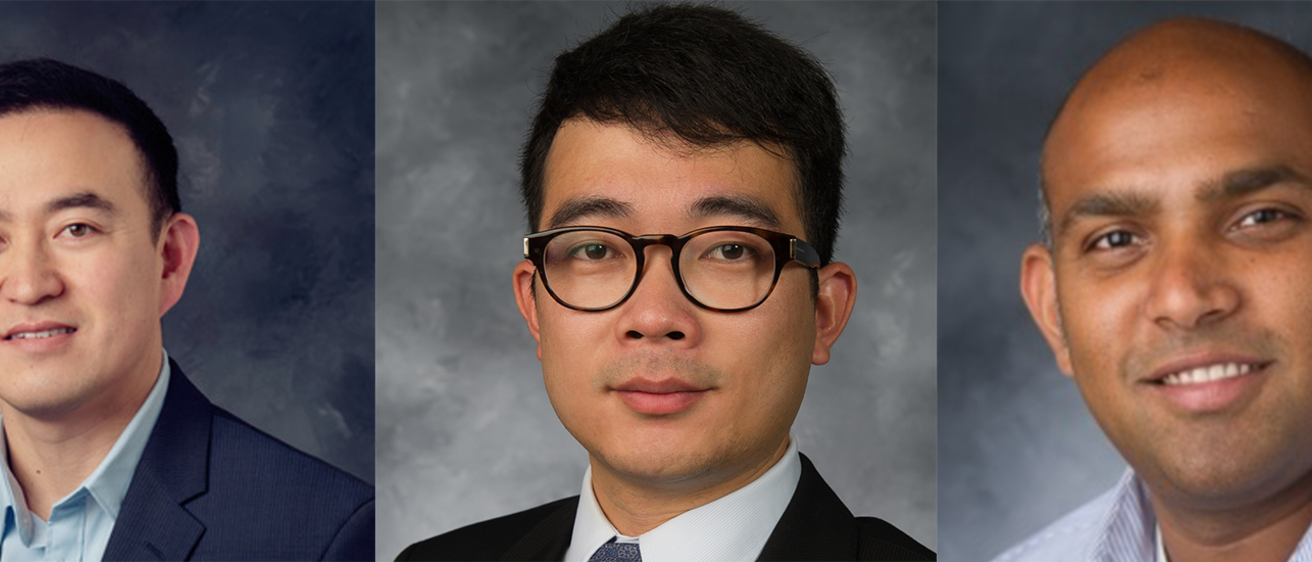A seed grant program launched by University of Iowa Technology Institute (ITI) to empower researchers to develop new theories, concepts, and approaches has been leveraged to secure externally funded research grants to advance knowledge and ultimately benefit society.
In 2019, ITI (then CCAD) introduced CRISP, or CCAD Research Initiative Seed Program, to sponsor preliminary research and/or preparation activities necessary to apply for competitive medium- and large-scale externally funded research programs. A total of $200,000 was distributed to eight projects in the first year.
"With the seed grant money, we developed a new 3D printing platform that integrates sensing, material deposition, consolidation capabilities," said Xuan Song, assistant professor of industrial and systems engineering and director of AMPRL. "This new system can be used to fabricate various high-density materials, including functional ceramics and energetic composites."
The CRISP program is an example of how ITI advances the University of Iowa's mission of faculty-led research.
Song received $25,000 for his project called "Nature-Inspired Additive Manufacturing of Highly Tailorable Electroceramics for Sensing and Optical Applications." Results led directly to a three-year, $598,886 Air Force Office of Scientific Research grant awarded in August. It is called "3D-Printed, Hierarchical Polymer-Bonded Energetic Composites with Electromagnetically Switchable Porosity," he said.
The seed funding enabled his team to develop the new 3D printing platform, which provided "significant preliminary results for the larger award," he said. While the award fuels Song's research efforts, the public ultimately stands to benefit.
"It will improve the safety of explosives, which are usually dangerous to handle during manufacturing, storage, and transport," Song said.
Results from a $25,000 seed grant awarded to Hongtao Ding, associate professor of mechanical engineering and director of the Laser Materials Processing Lab, bolstered the case for a RAPID grant to study COVID-19.
In May, Ding, who is co-principal investigator, and H.S. Udaykumar, professor of mechanical engineering and interim associate dean for graduate programs and research, received a one-year, $199,544 National Science Foundation grant for a project called "A physics-based model for droplet drying on varying surfaces and changing seasonal conditions and the implications for COVID-19 survival.”
They will try to answer how the survivability of viruses inside droplets depends on surfaces and across seasons.
Syed Mubeen, assistant professor of chemical and biomedical engineering and director of the Syed Mubeen Research Group, has received promising signals for a phase two U.S. Department of Agriculture Small Business Innovation Research Program grant based in part on results from a 2019 seed grant. Mubeen received a $25,000 CRISP seed grant for "Novel Materials and Systems for Sustainable Production of Liquid Fuels."
Preliminary research continues, and Mubeen called the seed grant funding instrumental in moving to phase two.
"This really helped me to dedicate a student to work on projects that otherwise I would not have had the resources for," Mubeen said. "It is too high risk, high reward to collect the data without support, and I don’t think federal agencies would give awards without the preliminary results."
Mubeen’s research focuses on unlocking new, clean, and efficient energy sources to power any number of things.
In this project, Mubeen has been trying to discover the right catalysts that can transform pollutants in water into liquid fuels, a potentially valuable energy product. He calls it "high risk, high reward" because there isn't a research foundation reinforcing that the results he believes can be achieved are possible.
"Not only are you getting money to survive but to sow the seed for something really big," Mubeen said.
The CRISP program was an outgrowth of the ITI's fall 2018 retreat. CRISP grants are dedicated to ITI faculty affiliates and research staff although collaborating with external research partners is encouraged. Awards cap at $50,000.
